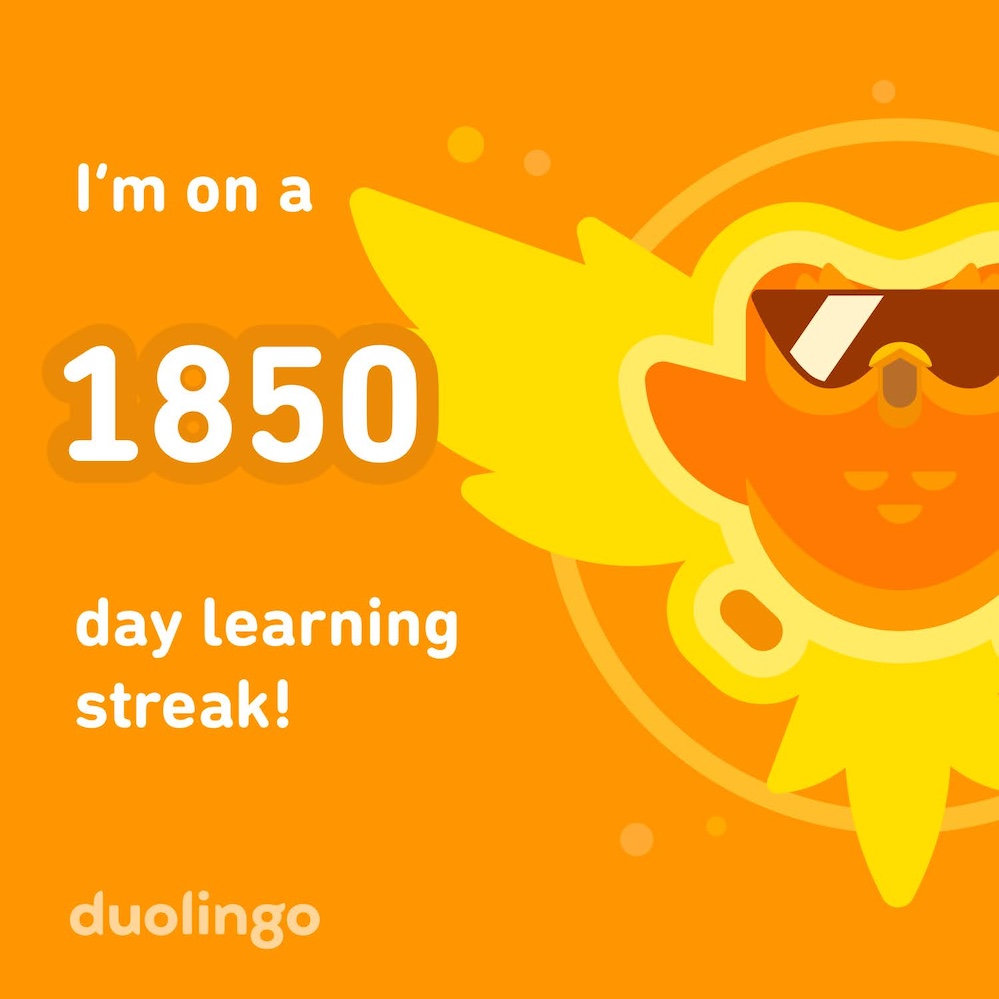
Yes, but I still feel lazy, because it is relatively easy to make progress in German, but I haven’t resumed studying Japanese.

Hints on how A.E. Graves spends her imaginary spare time

Yes, but I still feel lazy, because it is relatively easy to make progress in German, but I haven’t resumed studying Japanese.
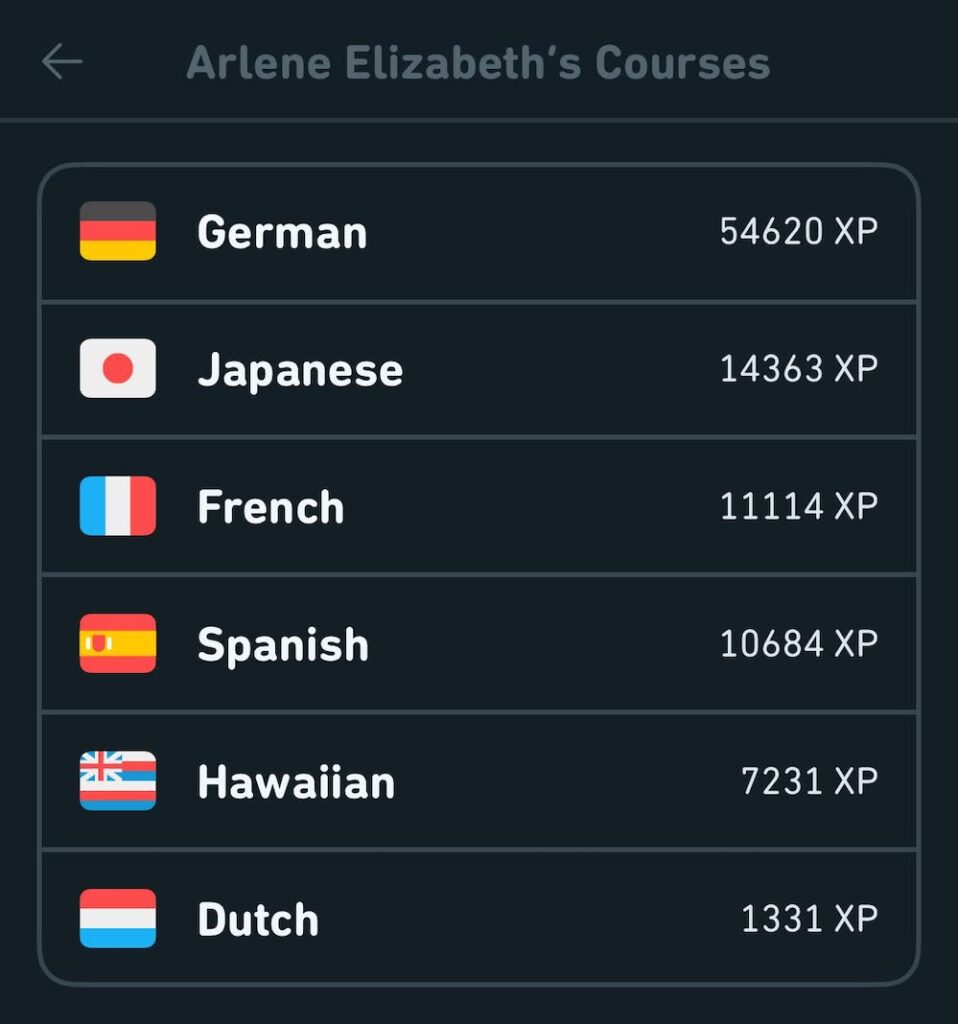
I realize I posted that I’ve been studying languages with DuoLingo nearly daily for FIVE YEARS, but didn’t write what I’ve studied during that time. It’s time to expand on this enthusiasm further!
German: my most dedicated area of study, and the reason I picked up Duolingo in the first place. I had studied German for four years in high school, stemming from the fact that my father was stationed in Germany with the army, and became strong conversationally: books in our house in German frustrated me in childhood because I couldn’t read them, so this was an easy choice in school. Infrequent use made it weak, and so my work for an employer in Switzerland required real preparation! Duolingo got me back where I needed to be, only to find myself tripping over the unique dialect of Basel Stadt in Switzerland. (Have I written about that?) German is the language of two pen friends, and so I read and write it this several times each month.
Japanese: the language of fun material culture during high school (hello, anime!) and the culture my architecture teachers attributed my design influences to. My mother recently started taking credit for walking me around Japan Center almost daily while I was a stroller-bound infant, which would explain my feelings of home-y comfort when I go there now! While it is easier to visit Japan without Japanese language skills than it was in 1992, I still enjoy being literate – it makes a difference. I brushed up before both of my trips, and found it very beneficial, even though I often lacked the specific words I needed for niche situations (relating to art supplies). I ramped up my studies during the COVID restrictions for a trip that wasn’t possible but will surely happen soonish. Duolingo’s lessons are both challenging and impressive, and include kanji!
French: I love Paris, and French sounds so cool. I know enough to navigate museum explanatory panels – I impressed a friend at the printed fabric museum in Mulhouse, but being a printmaker who has used etching presses and other technologies, the niche vocabulary didn’t scare me. I sometimes bicker with subtitles for French films, but I’m being too literal, while they are being more poetic. I can only say basic transactional things, which I forget instantly. (My big achievement during a business trip was stating that the entree was not my meal, which was instantly understood.). I worry that I will be very effective at buying paint regardless, especially at Magasin Sennelier and Charvin Arts.
Spanish: after understanding the abuelas who needed my help getting things off high shelves throughout my youth, I figured I should learn things non-grandma-related. Maybe even verbs! It doesn’t stick well, because I’m not watching telenovelas anymore, but has improved my eavesdropping.
Hawaiian: it is super interesting, and has so many vowels! The lessons still feel early in development, relative to the subject content of other languages.
Dutch: this was before a trip to the Netherlands, and it had too many random similarities to German UNTIL IT DIDN’T, and this left me more confused than it would have it I hadn’t thought I knew what was happening. If I’m going to be confused, it needs to be a language with clearer dissimilarities, like Icelandic or Swedish.
Somehow, I’m resisting Korean… so far.
Duolingo remains a satisfying way to practice existing language skills AND to develop new ones!
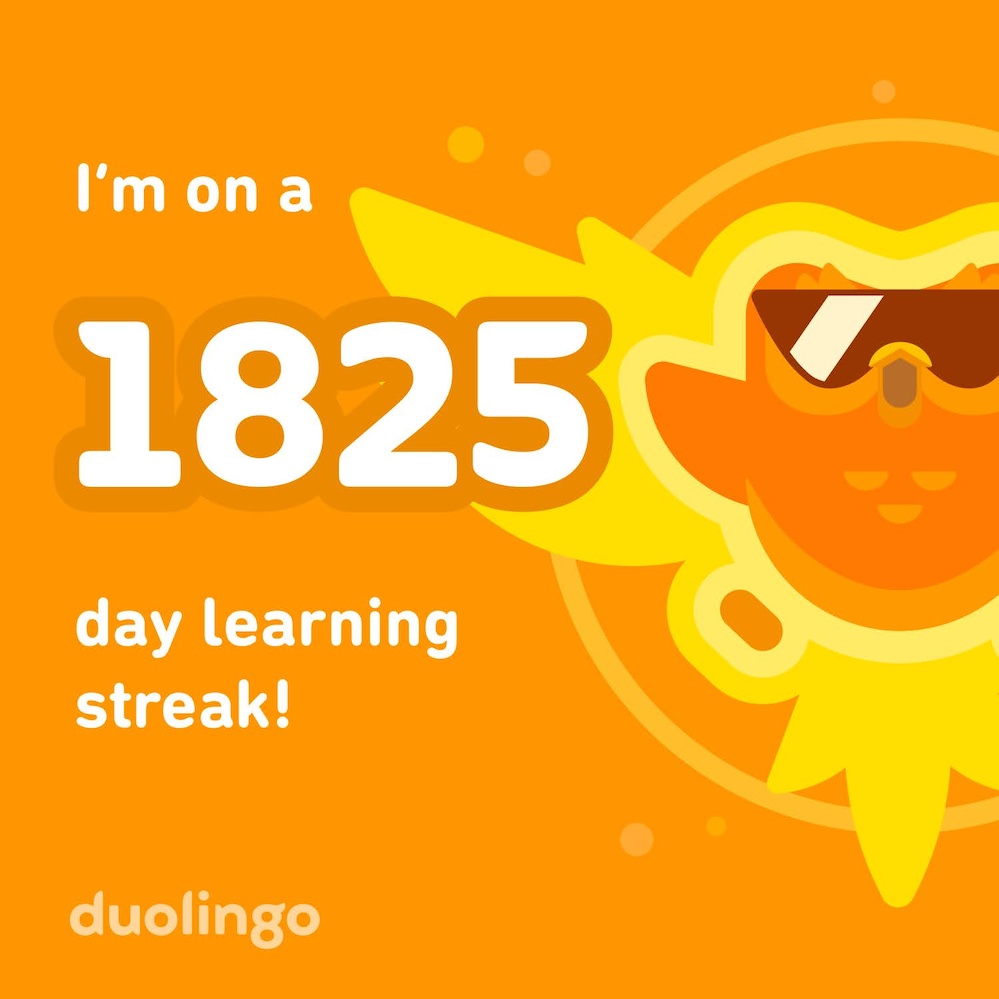
I am… a fanatic.
This is the five year mark! I feel lucky to have access to lessons like this.
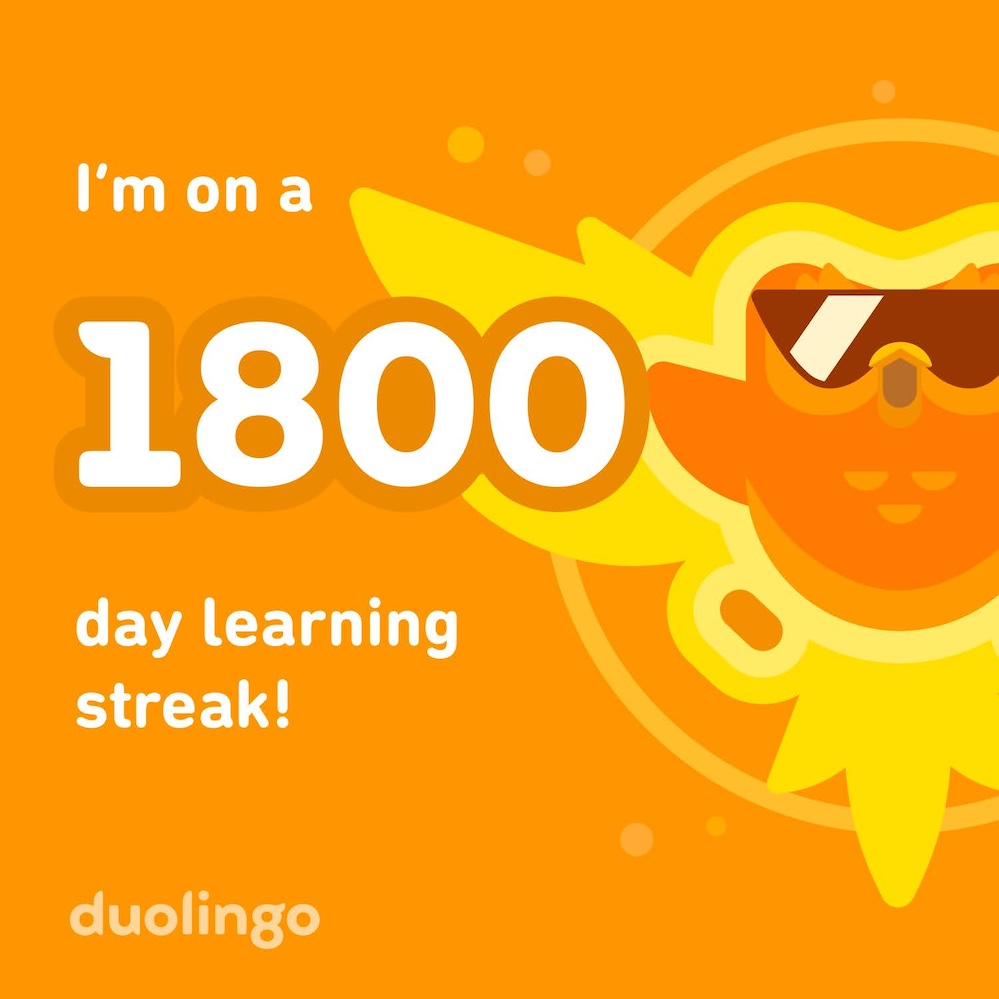
I am persistent.
This year it has been all German. I have travel plans that require another language, and my reluctance to study that language has me doubting whether I will really go…
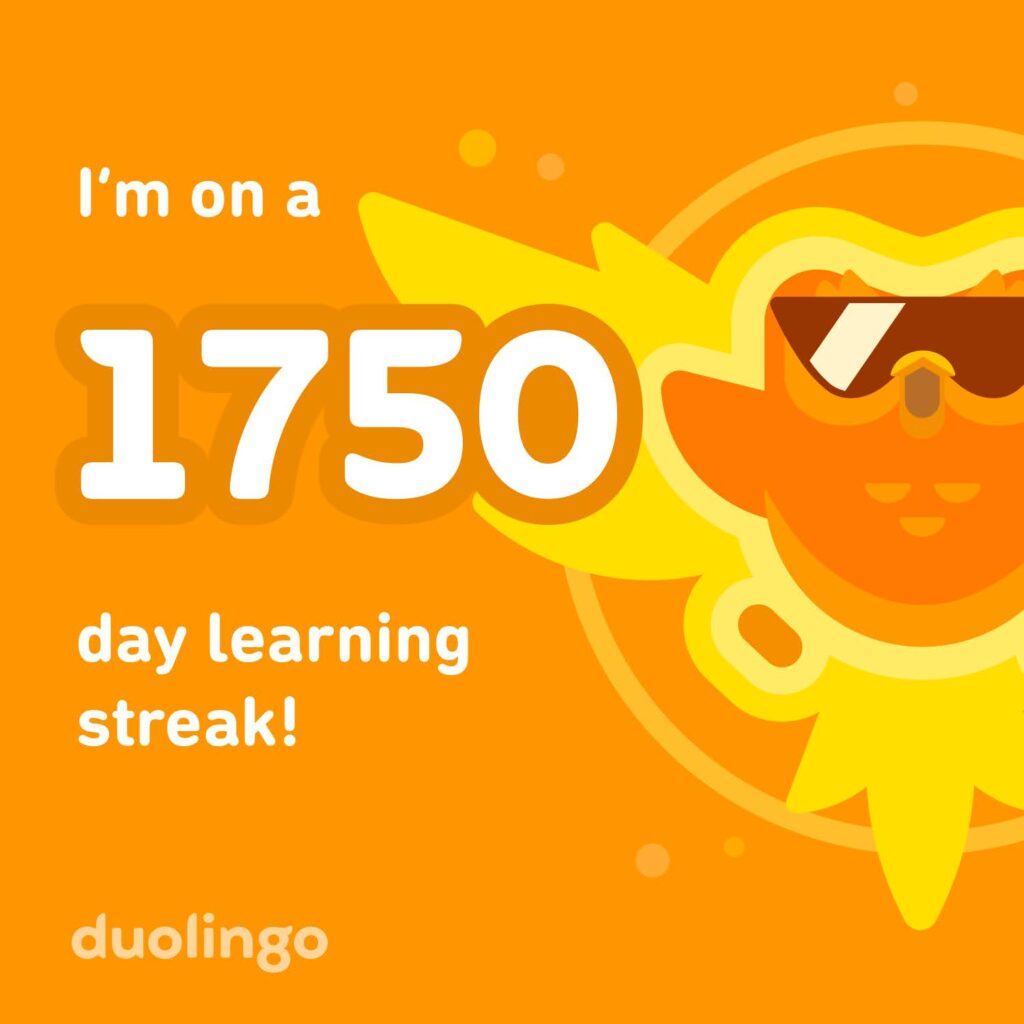
Like the book title about being obsessed with books, my language study streak is a gentle madness.

I’m starting to add the tag “manhwa” to the Korean webcomics I’m posting, because I got into them before being able to have pedantic arguments about what distinguishes manga, manhwa, and even manhua!
The general gist is that these are comics (a) from South Korea that are often (b) in color and now even (c) set up for vertical (phone) scrolling publication.
If you haven’t noticed (because I usually only write at the end of publication, and so much of what I’m reading is in ongoing serialization without end), my main sources of manhwa content are Tappytoon and the Webtoon app.

Many genres and styles are available. I primarily choose stories of:
The digital coloring, use of 3D software to model figures in lifelike positions and odd angles, and the application of complex textures and patterns makes this genre quite visually appealing – my phone is filled with screenshots of favorite characters whose costumes would be disabling to draw by hand, but are slightly less so with digital tools. (They can still be disabling – the artists need to take long breaks between seasons to recover from the efforts! Some are on long term hiatus for health reasons… I worry a bit for the artists over this.). I’m a bit discouraged by the dominance of European castles and royal themes, though I understand why the elaborate costumes can be fun, and why it is convenient to have idle (not ordinarily employed) characters with time to get into trouble.
You’ll see the new tag applied as I consider whether to rename the titles to a broader category like comic (which evokes American retro-newspaper comics, rather inaccurately) or perhaps graphic fiction.
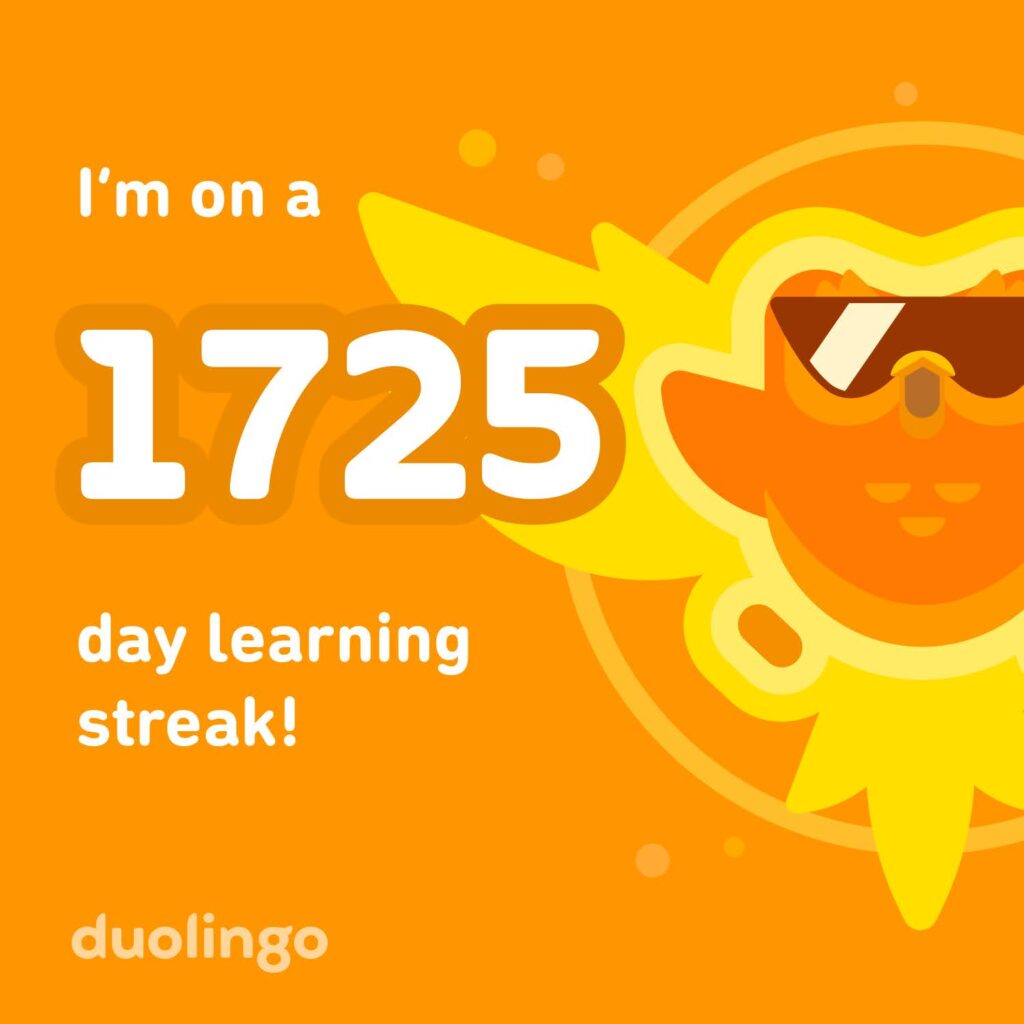
The things I do for my brain are… geeky.
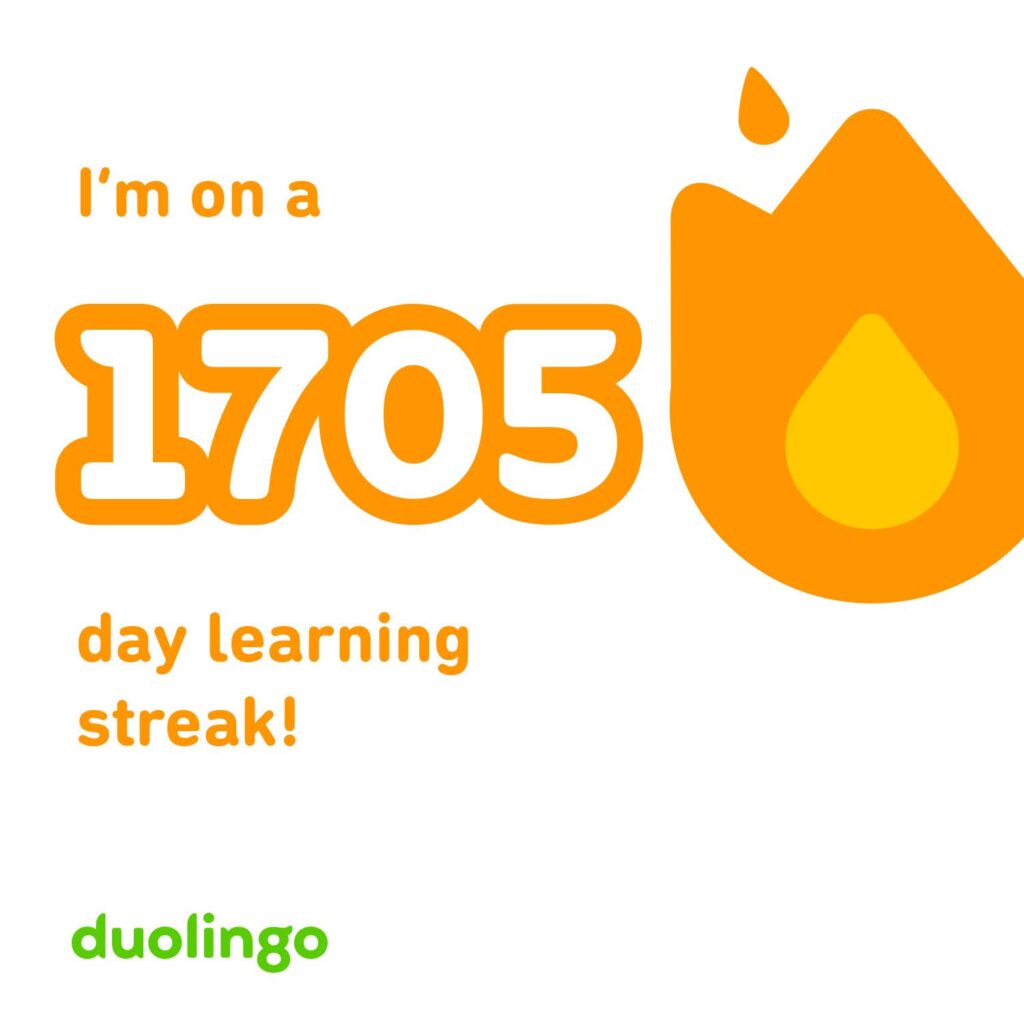
Still German, this year. There is so much to learn!

Sports that women aren’t allowed to play in school are boring, but this is a favorite meme. I happily celebrate owls.
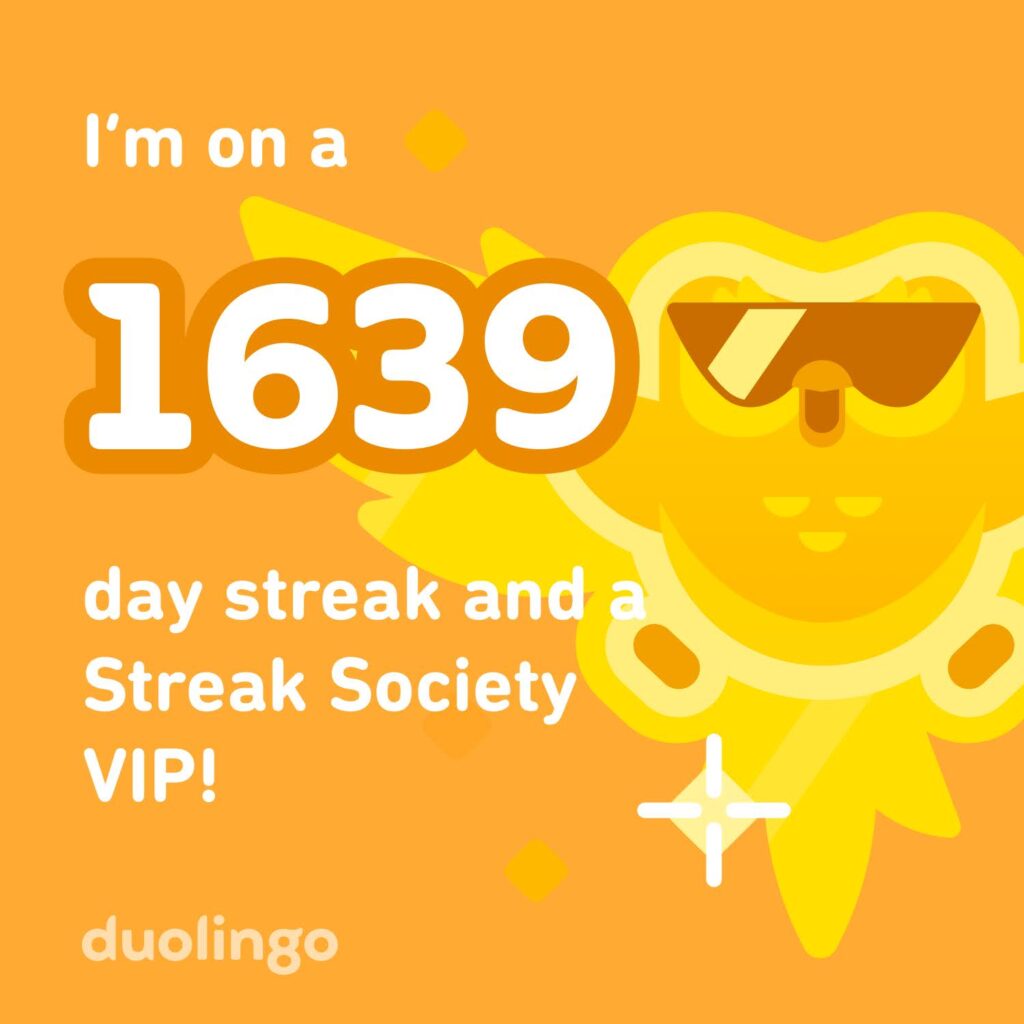
I am ridiculous.
I usually practice German, and will eventually choose my alternate language this year. I should go back to Spanish, but I forget it instantly. I want to return to Japanese, but I found my study notebook, and I don’t understand my own notes! (GAAAAAHHHHH! [Scream that sounds similar in Japanese, actually.])
Google Translate has improved, but often uses less common words or is too literal. I use it when translating discussions of new subjects, but have had feedback multiple times from native German speakers that it isn’t quite right, and they prefer my efforts. But… But…